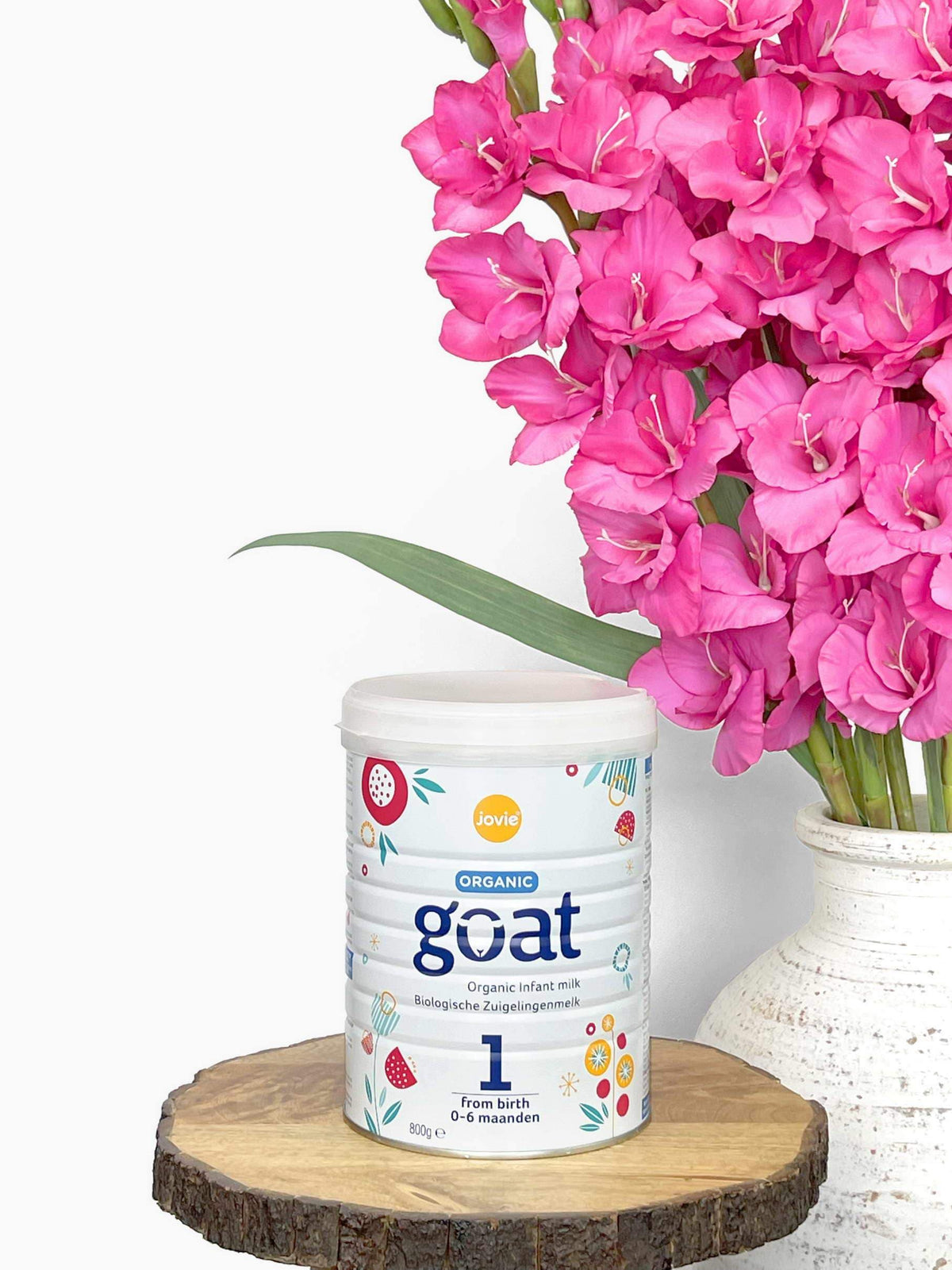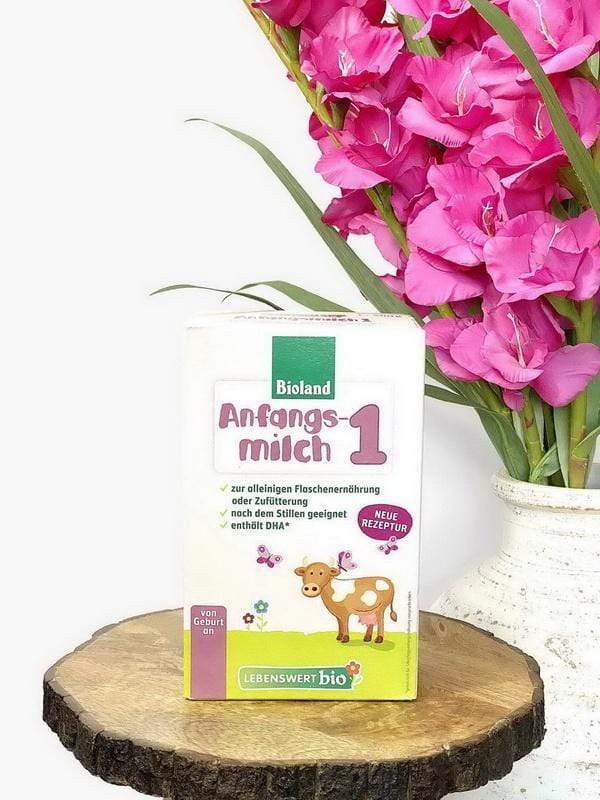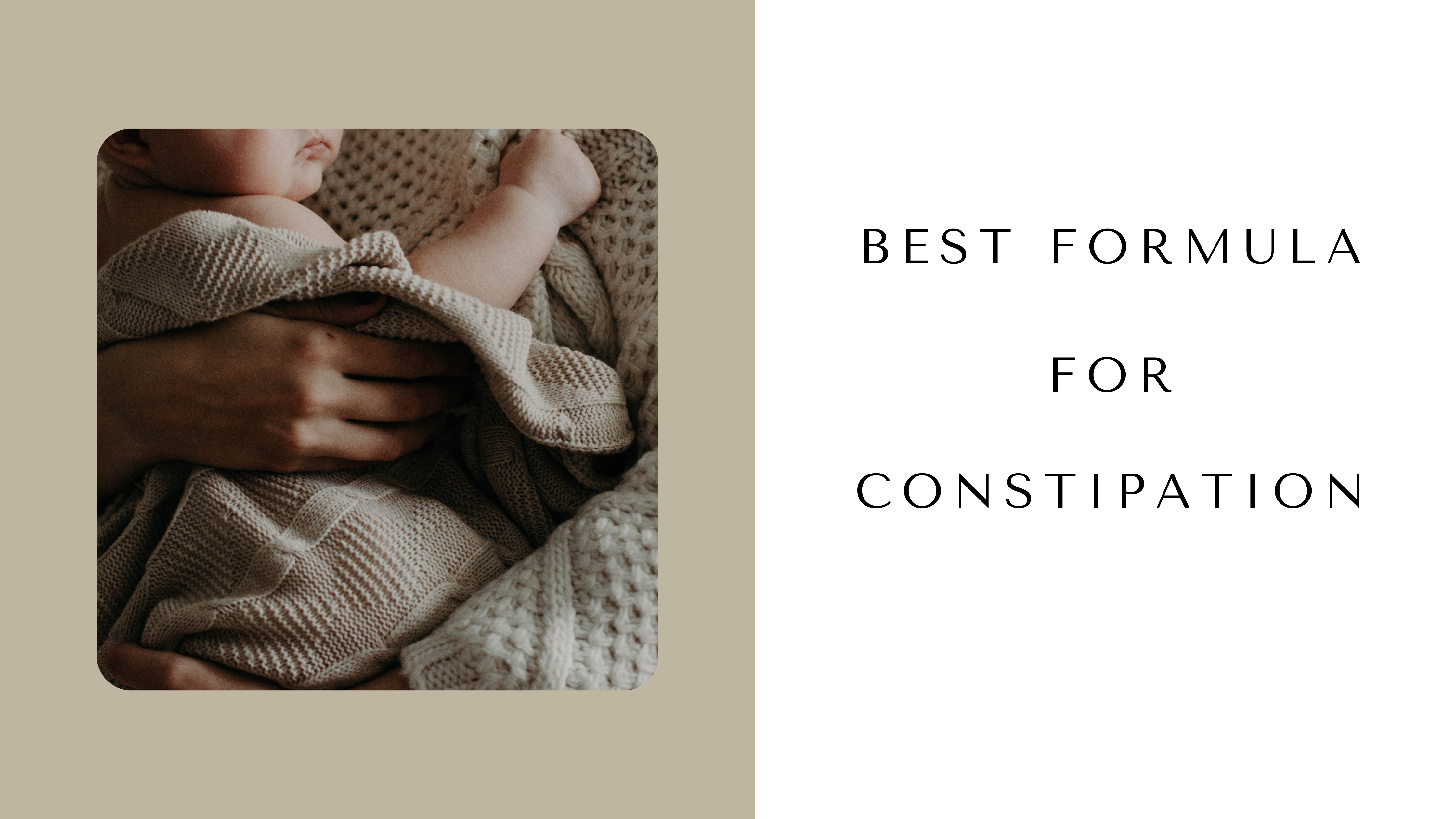Updated 12/2022
It can be disconcerting when a little one goes a long time between bowel movements. It is not always easy for parents to understand constipation and how it affects their baby.
Most of the time, it is normal for a baby to go days or even more than a week without a bowel movement. However, sometimes an infant may be unable to get digestive relief and need a little help.
A quick look into the facts and symptoms associated with constipation can help you keep things in perspective.
Table of Contents
1. Constipation Relief in Infants
2. Newborn Not Pooping But Passing Gas
3. New Born Cries When Pooping
4. How Can I Tell If My Baby is Constipated?
5. Causes of Chronic Constipation in Infants
6. Natural Remedies for Constipation
7. Home Remedies For Constipation
8. Does Apple Juice Help with Constipation?
9. Best Formulas For Constipation
10. Best Remedies For Constipation
11. What to look for when choosing the best baby formulas for constipation
12. Baby Formula for Constipation
13. HiPP Baby Formula
14. Holle Baby Formula
15. Goat Milk Baby Formula
16. Relieve Constipation in Infants
Constipation Relief in Infants
Believe it or not, sometimes it is okay for a baby to go without a bowel movement. How long is too long for an infant to go without pooping?
Well, there is no simple answer because there are several factors that need to be taken into account. Some things to consider are age, diet, and medical history. Most of the time, babies that won’t poop are fine with little or no treatment.
It is also worth noting that constipation isn’t just about how often your baby poops. It’s also about how much struggle they have to pass the stool.
A good rule of thumb is if they have soft to medium stools that are easy to pass, even if they occur as little as every 4-5 days, they probably need to be more constipated.
Newborn Not Pooping But Passing Gas
As a newborn's digestive system develops, it is not uncommon for them to get a little stopped up. Up to 30 percent of newborns get constipated regularly.
Constipation can make your baby gassy while trying to pass poop. You can expect the stool to be hard when they can finally go.
On the other hand, your baby might get gassy in between bowel movements even without constipation. Even under the best digestive circumstances, parents and caregivers are often surprised by the amount of gas their little one is capable of producing.
Although this gas can lead to tummy pain, it can be a regular part of an immature digestive system and does not always indicate constipation.
Newborn Cries When Pooping
It takes time for babies to learn how to use their new bodies and coordinate their muscles. It is not unusual to hear grunts and cries due to your baby's attempt to push out the poop.
These concerning sounds will stop once your baby learns how to coordinate muscles and push bowel movements easier.
As your baby’s system matures, families may ask- what signs or symptoms point to more of a problem than slow bowels?
How Can I Tell If My Baby is Constipated?
As previously stated, the signs of constipation in babies may vary depending on age and your little one’s current diet.
A normal bowel movement before a baby begins eating solid food should be very soft, almost like the consistency of peanut butter, or even looser. That means that hard baby stools prior to introducing solid food are the most apparent indication of constipation in babies.
Causes of Chronic Constipation in Infants
Formula-fed babies are more likely to be constipated than those exclusively breastfed. Mothers' milk is generally easier for infants to digest due to small proteins.
The formula, for the most part, is thicker and has larger proteins that take longer to absorb and, for some littles, are harder to digest. This can alone cause constipation in infants.
It is also worth noting that switching baby formulas too much or too fast can cause or make worse effects of constipation.
Remember that this does not mean that a breastfed baby can’t become constipated or that all babies on formula will become constipated.
If a milk protein allergy is the cause of constipation in your baby, it will not matter if the little one is breast or formula fed.
While a breastfeeding mother can reduce her dairy intake, a formula-fed baby will need to change their formula to one that will be easier for the baby to digest and absorb.
Natural Remedies for Constipation
These mild, natural remedies for constipation in babies are good whether there is constipation or not. Adding them to your daily routine can be preventive and proactive in bringing your little one digestive relief.
Exercise
If you think about it, exercise makes total sense. Infants can be born with weak pelvic muscles that may struggle to effectively eliminate waste.
Babies who are not walking or even crawling yet may need a little physical movement to help these muscles improve.
The parent or caregiver can gently move the baby’s legs while they are lying on their back to mimic the motion of riding a bicycle. Doing this may help the bowels function and relieve constipation.
An easy at-home exercise that any parent or caregiver can do is the “bicycle.” It is as easy as gently moving the baby’s legs while they are lying on their back to mimic the motion of riding a bicycle.
Warm Bath
Giving your little one a warm bath will help relax their abdominal muscles and relieve abdominal muscles that are tired and sore from straining.
Massage
There are several ways to massage a baby’s stomach to relieve constipation that will also relax and soothe. Try these after a nice warm bath for extra effect.
Using the fingertip to make circular motions on
the stomach in a clockwise pattern
Walk the fingers around the naval in a
clockwise pattern
Hold the baby’s knees and feet together and
gently push the feet toward the belly
Stroke from the rib cage down past
the belly button with the edge of a finger
Home Remedies For Constipation
Remember, babies often go a long time between bowel movements, and while it is normal for babies to go several days without relief, there are times when your little one may need help.
If a baby is constipated, your pediatrician may recommend using one or more of the following home remedies to help stimulate the baby's digestive system.
Karo Syrup for Babies
If your baby has not been able to release their bowels, your healthcare professionals may recommend feeding your infant Karo syrup. Karo syrup for infants can be used to prevent or treat constipation.
It is important to note when giving your little one corn syrup that it has not been sterilized. You may inadvertently introduce harmful levels of bacteria called Clostridium botulinum (C. botulinum) if you add it to your baby's bottle.
Always use a medicine dropper or clean spoon to give Karo syrup for infant constipation and check with your baby's doctor before introducing this remedy.
Castor Oil for Constipation in Babies
The majority of doctors will advise against the chronic use of stimulant laxatives, such as castor oil. These have horrible side effects and can do more harm than good. Only use your doctor’s expressed permission.
Mineral Oil for Constipation in Infants
Do not use mineral oil to treat infant constipation. Like castor oil this has extreme and often harmful side effects.
Does Pedialyte Help With Constipation?
Older babies and toddlers may benefit from electrolytes in some situations, but in this situation it is better to relieve hard infrequent stools with natural remedies or other kinds of juices.
Does Apple Juice Help with Constipation?
We often are asked, “Is juice good for constipation?” The answer is twofold, newborn or young infants are not typically allowed to supplement with other liquids as it may throw off the nutritional balance needed for growth and development.
Apple Juice for Babies
Older babies over four months old, and with your pediatrician’s approval, may benefit from adding a small amount of water or apple juice for baby constipation.
Prune Juice for Babies
Prune juice for infants relieves constipation by having laxative and diuretic properties. Dried plums have high sorbitol content, which is what prune juice is made from. This substance has laxative and diuretic properties; combining this with the phenolc compounds in dried plums and prune juice makes an effective laxative.
If your child is over one year old, giving them prune juice in small amounts is generally safe to relieve constipation. Under the age of 1 year old, please consult your pediatrician
Pear Juice for Constipation
Another great option is pear juice, which contains four times more sorbitol than apple juice and has a mildly sweet taste babies love.
Best Formulas For Constipation
Infant digestive systems are so immature that constipation can be a real problem when exposed to most over-the-counter, non-organic formulas out there.
Best Remedy for Constipation
When it comes to constipation in formula-fed babies, your infant's nutrition is often the key to solving the problem.
What to look for when choosing the best baby formulas for constipation
Baby Formula for Constipation
American baby formulas that can be easily found in big brand stores are filled with under-regulated and toxic ingredients. These synthetic, non-lactose sugar and heavy metal-laden American baby formulas can often cause constipation because they are tough to digest and have little absorbable nutrition.
Parents looking for better nutrition that is easier to absorb and digest are turning to European baby formulas. These clean, pure, organic baby formulas mimic breast milk as closely as possible.
Going the extra mile for babies struggling with constipation, European baby formulas design superior nutrition with smaller proteins that work quickly through the digestive system while maintaining the absorption of nutrition needed for healthy growth and development.
HiPP Baby Formula
HiPP Baby Formula has designed superior nutrition for little ones with ongoing constipation and other tummy issues.
HiPP Comfort
HiPP Comfort is specially formulated to address gassiness, lactose-related colic, and constipation.
A sensitive tummy in the first weeks and months of life is not uncommon, and your baby's digestive system is often not yet fully developed, which can lead to constipation.
HiPP Special Comfort has extensively hydrolyzed lactose proteins to help babies with digestion by splitting the milk into simpler molecules, making it easier for a baby’s body to process milk-based formula.
1 Year Old Constipation
European baby formulas have your little one covered at every age and stage. HiPP Dutch Stage 3 and HiPP UK Stage 3 are specifically designed to keep your one-year and older infant’s digestive system healthy and happy.
With probiotics and prebiotics, HiPP Combiotic Formulas are perfect for helping settle digestive flora as new foods that can cause constipation are introduced.
Holle Baby Formula
Another special nutrition option is Holle A2 Protein formula.
Babies who experience discomfort, inflammation, constipation, and other digestive issues benefit from a simple switch to A2 protein milk.
These gentler proteins allow even the most sensitive little ones to easily digest and absorb cow’s milk-based formulas.
Goat Milk Baby Formula
Goat milk formula can also be a better formula for children with constipation due to the A2 milk qualities and high levels of prebiotic oligosaccharides.
Prebiotic oligosaccharides are non-digestible fibers; this means that the fibers remain in the large intestine and perform various functions to promote digestion.
Most Like Breast Milk
European organic goat's milk baby formulas are made with wholesome ingredients designed to mimic the properties and nutrients in mother’s milk.
For little ones prone to constipation, it is incredibly comforting to know that if you feed your baby organic European goat's milk formula, they are getting all the digestive benefits and nutritional content needed for healthy development.
When to See a Doctor for Constipation
Although constipation in children can be uncomfortable, it usually is not severe.
If constipation becomes chronic, however, complications may include:
No stool in more than 2 days
Rectal prolapse, when the rectum comes out of the anus
Blood in the stool
Baby seems to be overly irritable
Baby appears to have abdominal pain
You can work together to find the best solution by seeing a doctor. In rare cases, your medical professional may prescribe medications, such as laxatives, enemas, or suppositories.
Parents and caregivers are strongly advised against giving these medications mentioned earlier to a baby unless specifically prescribed by a doctor.
Relieve Constipation in Infants
When searching for the perfect European baby formula to ease constipation or digestive problems, you are guaranteed to find 100% non-synthetic, clean nutrition to build a foundation for a lifetime of health at My Organic Company.
Our staff is dedicated to bringing your family nutrition to help with tummy issues and a community of support you can also count on.
We look forward to seeing you in the HiPP Holle Kendamil & European Baby Formula Parent Community.














